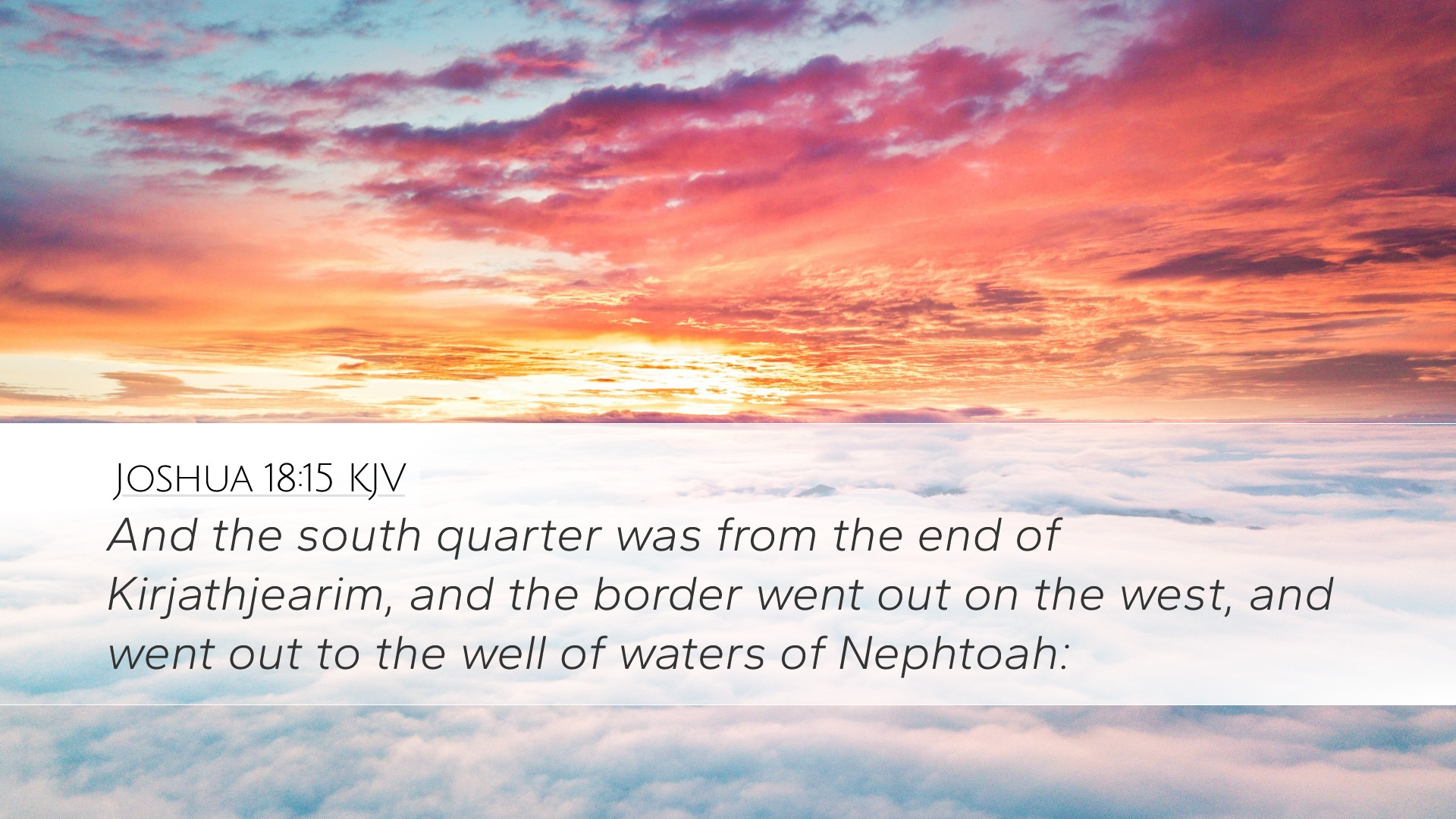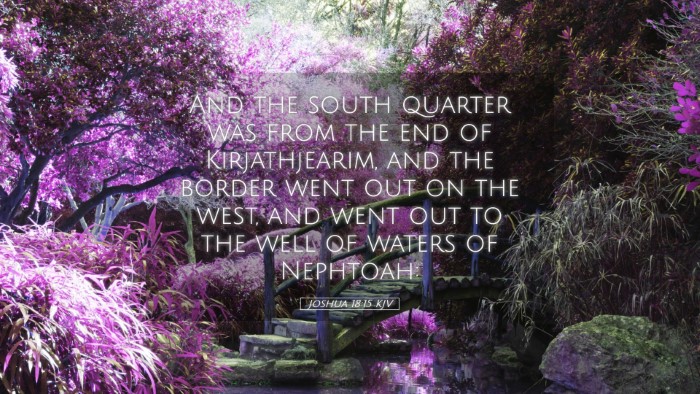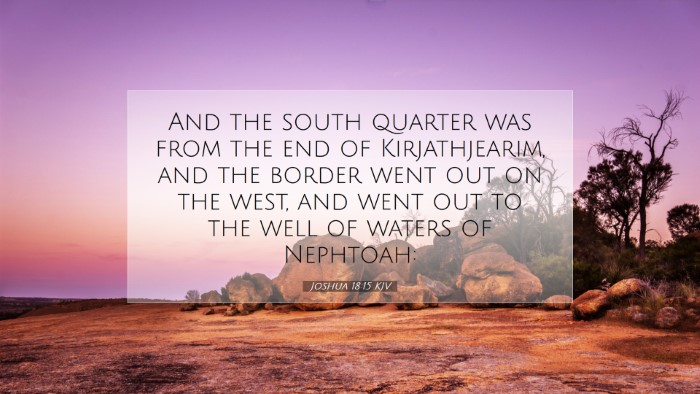Commentary on Joshua 18:15
Joshua 18:15 states: "And the south corner was from the end of Kiriath-jearim, and the border went out on the west, and it went out on the well of waters of Nephtoah." This verse is part of the distribution of land among the tribes of Israel, particularly detailing the borders of the tribe of Judah.
Historical Context
1. Context of Land Distribution: The book of Joshua records the Israelites' conquest of Canaan and the subsequent allocation of the land among the tribes. This specific verse forms part of a larger narrative concerning the detailed allotment of territories in Judah. Understanding this context is crucial for interpreting the significance of the borders drawn.
2. Significance of Kiriath-jearim: Kiriath-jearim, known as the "City of Forests," stands as a historically significant location. According to Matthew Henry, it served as a marker of land allocation, symbolizing God's fulfillment of His promises to His people. The city's inclusion in the border highlights its prophetic and geographical importance.
Geographical Significance
The borders mentioned in Joshua 18:15 reflect not only territorial disputes but also the geographical layout of the region. Albert Barnes notes that the delineation of borders served practical purposes for the tribes, facilitating governance and maintaining boundaries. The "south corner" indicates the southernmost point of the Judah region, which was vital for territorial integrity.
- Well of Waters of Nephtoah: This reference emphasizes the importance of water sources in ancient Israel, crucial for survival and agriculture. Water marks a blessing and sustenance for the land.
- Implications of Borders: Establishing clear borders helped to eliminate conflicts among tribes and established a sense of identity and belonging among the members of the tribe of Judah.
Theological Reflections
This verse speaks to the faithfulness of God in executing His promise to the Israelites, providing them with a land as previously foretold to Abraham, Isaac, and Jacob. Adam Clarke elaborates on this theme of divine faithfulness, emphasizing the historical fulfillment of God's covenant with His people. The division of land is a testimony to God's leading and provision amidst their journey through the wilderness into the Promised Land.
Key Theological Themes
- Covenant and Promise: This allocation reinforces the concept of divine covenant, showcasing God's enduring relationship with the Israelites and His commitment to fulfill His promises.
- Identity and Belonging: The establishment of geographic boundaries fostered a communal identity that was integral to the tribes' existence. The borders delineated by Joshua provided not just physical space but cultural and spiritual identity.
- Providence and Guidance: The meticulous description of borders exemplifies how God orchestrates the allocation of resources and land, symbolizing His providence over His creation.
Practical Applications for Contemporary Readers
Joshua 18:15 invites contemporary readers to reflect on the themes of boundaries, identity, and God's provisions. Here are several practical applications:
- Understanding Our Heritage: Just as the Israelites were reminded of their foundational history and identity through land allocation, believers today should appreciate their spiritual heritage and relationship with God.
- Recognition of God's Provision: Much like the well of waters being a source of sustenance, Christians are called to recognize and celebrate God's providence and blessings in their lives.
- Importance of Community: Establishing and understanding boundaries invites discussions around communal living and support. Believers are urged to cultivate a sense of belonging and responsibility within their church and broader community.
Conclusion
In summary, Joshua 18:15 serves as a compelling reminder of God's faithfulness in fulfilling His promises while emphasizing the importance of community, identity, and divine providence. The historical, geographical, and theological insights drawn from this passage enrich our understanding of God's redemptive plan and provide timeless lessons pertinent for today's believers.


